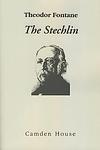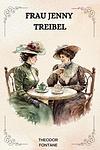Theodor Fontane
Theodor Fontane was a German novelist and poet, widely regarded as one of the most important 19th-century German-language realist writers. He is known for his novels that explore complex social environments, particularly in his famous works such as 'Effi Briest' and 'Der Stechlin'. Fontane's literary style combines detailed description, social criticism, and a touch of humor. He was also a contributor to the development of the German novel and a master of the German ballad.
Books
This list of books are ONLY the books that have been ranked on the lists that are aggregated on this site. This is not a comprehensive list of all books by this author.
-
1. Effi Briest
This novel explores the life of a 17-year-old girl who is married off to a much older man, a high-ranking official, for the sake of social and financial stability. Despite her husband's devotion, she embarks on a passionate, but doomed affair with a charming, yet manipulative, major. The affair ends disastrously, leading to her social ostracization and eventual descent into loneliness and despair. The book serves as a critique of the rigid Prussian society of the late 19th century.
-
2. The Stechlin
"The Stechlin" is a social novel set in late 19th-century Germany that explores the changes and tensions brought about by the modern world. The story follows an aging aristocrat who lives near Lake Stechlin and his interactions with the community around him, including his son who is a member of the Reichstag in Berlin. The novel is known for its detailed and realistic depiction of the social and political climate of the time, as well as its exploration of the conflict between traditional values and modernity.
-
3. Frau Jenny Treibel
"Frau Jenny Treibel" is a satirical novel set in late 19th-century Berlin, written by Theodor Fontane. The story revolves around the ambitious and social-climbing Treibel family, particularly Frau Jenny Treibel, who is determined to secure a noble match for her daughter. Through witty dialogue and humorous situations, Fontane explores the themes of social status, hypocrisy, and the clash between old and new money in German society.


